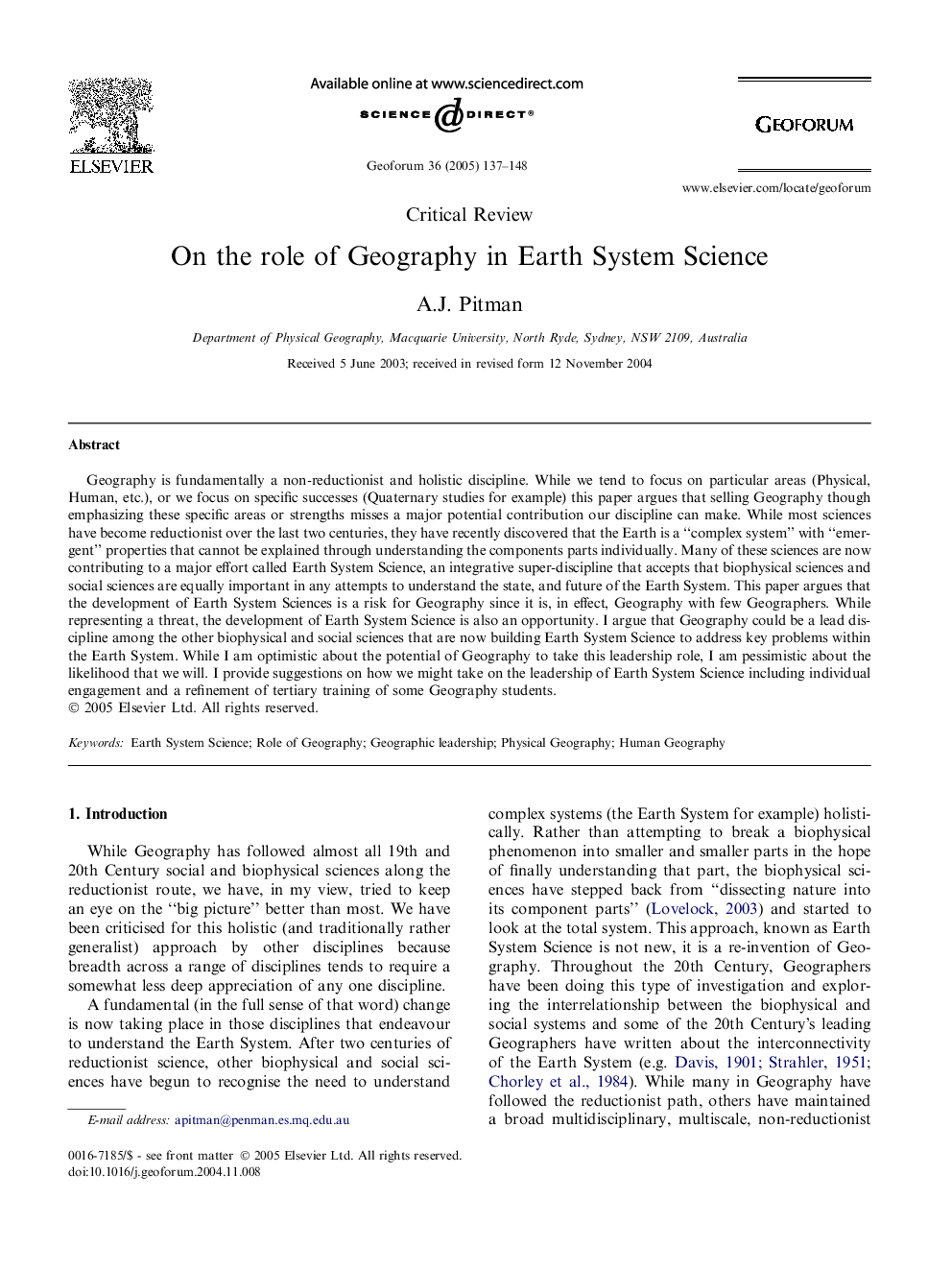| Article ID | Journal | Published Year | Pages | File Type |
|---|---|---|---|---|
| 9552323 | Geoforum | 2005 | 12 Pages |
Abstract
Geography is fundamentally a non-reductionist and holistic discipline. While we tend to focus on particular areas (Physical, Human, etc.), or we focus on specific successes (Quaternary studies for example) this paper argues that selling Geography though emphasizing these specific areas or strengths misses a major potential contribution our discipline can make. While most sciences have become reductionist over the last two centuries, they have recently discovered that the Earth is a “complex system” with “emergent” properties that cannot be explained through understanding the components parts individually. Many of these sciences are now contributing to a major effort called Earth System Science, an integrative super-discipline that accepts that biophysical sciences and social sciences are equally important in any attempts to understand the state, and future of the Earth System. This paper argues that the development of Earth System Sciences is a risk for Geography since it is, in effect, Geography with few Geographers. While representing a threat, the development of Earth System Science is also an opportunity. I argue that Geography could be a lead discipline among the other biophysical and social sciences that are now building Earth System Science to address key problems within the Earth System. While I am optimistic about the potential of Geography to take this leadership role, I am pessimistic about the likelihood that we will. I provide suggestions on how we might take on the leadership of Earth System Science including individual engagement and a refinement of tertiary training of some Geography students.
Keywords
Related Topics
Social Sciences and Humanities
Economics, Econometrics and Finance
Economics and Econometrics
Authors
A.J. Pitman,
